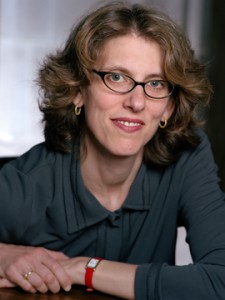By
From innovative financing mechanisms to worker and consumer cooperatives to renewable energy, the “new economics” movement is gaining strength in the US, according to Professor of Sociology Juliet Schor, who is leading efforts to develop an academic component to new economics.

Schor is the lead organizer for the Summer Institute in New Economics, which debuted last year at Boston College and will have its second session Aug. 12-18 in Wisconsin. She will be among a diverse group of faculty members and graduate students — as well as practitioners and entrepreneurs of new economy projects — that will discuss new economics-related research and educational opportunities.
The new economics movement is grounded in principles of ecological sustainability, democratization of wealth, community empowerment and social and digital connection, says Schor, and is a response to continuing unemployment, worsening distributions of income and wealth, and a lack of action on climate change, among other factors.
“While there is a groundswell of interest in new economics in the private and public sectors, research and teaching has lagged behind, especially in graduate education,” says Schor. “Through this institute, we hope to begin developing an academic infrastructure, and train young scholars to bring an interdisciplinary perspective to their work on new economics.”
In addition to Schor, the BC contingent at this year’s institute will be History Professor Prasannan Parthasarathi, doctoral students Jeremiah Morelock, Will Attwood-Charles and Katy Olson and master’s degree student Elizabeth Brennan, joining attendees from Australia, Canada, Colombia, England and The Netherlands as well as the US. Also on hand will be new economy figures such as Erika Allen from Growing Power, an urban agriculture nonprofit; Steve Dubb from the Democracy Collaborative, which promotes broad-based community development and Diego Angarita from Massachusetts-based Co-op Power, a consumer-owned renewable energy cooperative.
For Morelock, who holds degrees from Goddard College and Antioch New England Graduate School, new economics represents a creative step beyond old paradigms and developing economic arrangements that better reflect social realities and needs.
“People often talk about ‘the economy’ as if it is an intrinsic force that we are largely helpless before, that possibilities for economic systems lie on a continuum between an unfettered competitive market and a centralized, top down, planned economy,” he explained. “In reality, all economic relationships are social relationships first, and economies are much more complex than the issue of competition vs. control.”
Morelock sees the emerging field of new economics as a good fit for his academic interests, which revolve around power and bureaucracy in organizations. ”I expect for these to continue to be some of my main areas of focus as a researcher and teacher. What draws me to new economics most is investigating the social aspects of various economic arrangements that are designed with dedicated attention to equality, democracy, and sustainability.”
The institute is sponsored by the Johnson Foundation — which is hosting the event at its retreat center, a Frank Lloyd Wright-designed home in Wind Point, Wisc. — the Garfield Foundation and the Compton Foundation.



